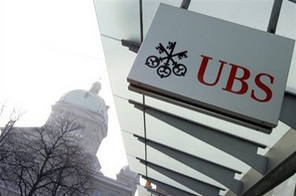US, UBS settle out of court in tax secrecy case
MIAMI: The US government and Swiss banking giant UBS have reached an out-of-court settlement to close a diplomatically sensitive tax secrecy case, attorneys in the case said Wednesday.
US Justice Department lawyer Stuart Gibson told a conference call with the judge overseeing the case and lawyers for the UBS and the Swiss government that an agreement had been reached, without disclosing further details.
"The parties have initialed agreements," Gibson said. "It will take a little time for the agreements to be signed in final form."
The case had been set for a trial to open Monday -- after several delays -- aimed at forcing UBS to disclose the names of Americans holding offshore accounts with the Swiss bank in an effort to evade taxes.
Gibson said the parties involved had asked the court to cancel Monday's trial date and that "when the documents are filed, the parties will submit a petition for dismissal" of the case.
UBS lawyer Eugene Stearns thanked Judge Alan Gold for his handling of the case and said it would "allow a very difficult matter to be brought to a successful conclusion."
The case could affect as many as 52,000 Americans who hold UBS accounts and could be prosecuted for tax evasion.
UBS had argued that it cannot comply with the US demand without violating Swiss banking secrecy law, which would make it liable for prosecution in Switzerland.
The Swiss government interrupted its summer vacation Monday to hold a special meeting over the case.
The seven members of the Swiss Federal Council or cabinet were meant to return from vacation only on August 19.
An agreement in principle had been announced on July 31, but reaching a final deal took more time than expected.
US authorities had been asking the court to order UBS to reveal the names of American offshore account holders, saying the Swiss bank "systematically and deliberately" violated American laws in promoting offshore accounts.
It was not immediately clear what if any fine would be imposed on UBS and what procedures would be accepted to identify American account holders.
The Swiss government had vowed to prevent UBS from releasing client data to US tax authorities and argued that the effort aimed to "provoke international conflict" because it could force UBS to violate Swiss laws.
The case could also have implications for other offshore banking centers around the world that protect the identities of their customers.
It also likely preserves the massive US presence of the Swiss banking group on US soil. UBS employed 26,934 people in the United States as at the end of March 31 this year, more than in its home country of Switzerland, where 25,889 were employed.






